Shaping Sustainable Consumer Behaviour
Welcome to the official website of the Consumer Lab at Mendel University in Brno. Find out more about us, our team, projects and other information. If you are interested, please do not hesitate to contact us.
About Consumer Lab
The Consumer Lab explores how societal trends and key factors influence consumer behaviour. Our mission is to identify the drivers and barriers to sustainable consumption and provide recommendations for responsible practices in areas such as food management, household equipment, reuse, and upcycling. Using advanced technologies for marketing research like EEG and eye-tracking, we gather insights to develop strategies that promote conscious and sustainable consumer choices.
Research Areas

Food waste
Food waste is not just a social or economic issue, but also an ethical and sustainability concern. At the Consumer Lab, we tackle food waste by examining its causes and identifying strategies to motivate consumers to reduce it. We investigate factors influencing food waste behaviour and promote responsible consumption.

Food waste sorting
Our objective is to develop a methodology for the collection and sorting of food waste that is acceptable to all key stakeholders in waste management, including consumers, municipalities, and waste collection companies, while seeking methods to repurpose it within a circular economy framework.

Upcycling and reuse
Upcycling and reuse are key practices in the circular economy that focus on reducing waste and extending the lifecycle of products consumers use in households on a daily basis. The research focuses on consumer behaviour and the factors influencing preferences for upcycled and reused products.

Fast fashion and slow fashion
Consumer Lab addresses the issues of slow fashion versus fast fashion, focusing on generational behaviour patterns and consumption habits. We aim to drive behavioral change towards more conscious consumption and support the circular economy.

Neuroscience
Using neuroscience, we explore consumer perceptions of marketing communications and the role of sensory experiences in decision-making, especially in online trends. Additionally, neuroscience serves as a foundational tool across all research areas, enhancing our understanding and strategies.

Educational Interventions
This research area explores how educational tools and digital learning platforms (e.g., FutureBooks) can shape sustainable consumer behaviours. It focuses on the impact of early education on reducing household waste and fostering long-term consumer responsibility.
Our goals
Our misson
Our mission is decoding consumer behaviour for sustainable choices.
Our Vision
Our vision is leading the shift in consumer behaviour towards conscious consumption and circular economy.
1.
Identify life attitudes and preferences across different generations to determine their impact on consumer behaviour and find out how to use them to change behavioral patterns towards sustainable consumption.
2.
Contribute to the development of cognitive models of consumer behaviour by differentiating between actual behavior and behavioral intentions, with a particular emphasis on moral values and responsibility.
3.
Utilize EEG and other neuromarketing tools in ETLab to explore consumer perception of marketing communication through experimental neuroscience measurements.
4.
Identify determinants of consumer behaviour related to food waste and management in households, leveraging modern information methods and personalized media communication to promote circular economy practices and effective interventions.
Our team
Our team is particularly interested in addressing current sustainability challenges, including the application of upcycling and reuse of household equipment. Through our data collection efforts, we aim to fill research gaps and generate new insights. We employ a range of methods, including traditional quantitative and qualitative consumer surveys, as well as advanced neuromarketing technologies such as EEG and eye-tracking. By using these insights, we aim to promote responsible and sustainable consumer choices.
Our team
Ing. Lucie Veselá, Ph.D.
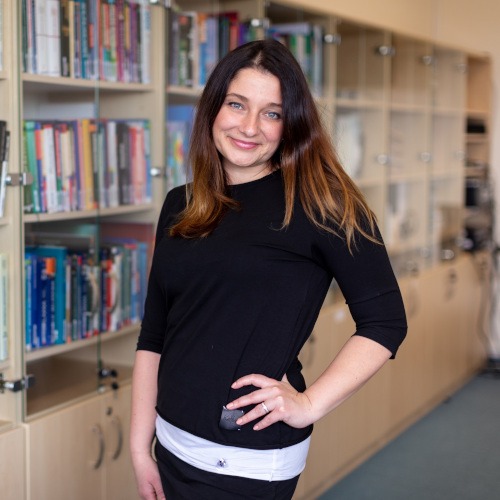
Ing. Lucie Veselá, Ph.D.
Research Area
Her research activities are primarily focused on the examination of consumer behaviour and identifying behavioural patterns in the context of sustainability. As a principal researcher on numerous projects funded by the Czech Science Foundation (TAČR), she is engaged in research activities related to food waste, upcycling, and fast fashion issues. Her research is focused on the design of interventions for the prevention of undesirable behaviours and the development of digital education in the field of environmental competences. The objective of her projects is to identify effective strategies for promoting pro-environmental behaviours and integrating sustainability into contemporary marketing. The pedagogical emphasis is on marketing communication and consumer behaviour.

Research Area
Her research activities are primarily focused on the examination of consumer behaviour and identifying behavioural patterns in the context of sustainability. As a principal researcher on numerous projects funded by the Czech Science Foundation (TAČR), she is engaged in research activities related to food waste, upcycling, and fast fashion issues. Her research is focused on the design of interventions for the prevention of undesirable behaviours and the development of digital education in the field of environmental competences. The objective of her projects is to identify effective strategies for promoting pro-environmental behaviours and integrating sustainability into contemporary marketing. The pedagogical emphasis is on marketing communication and consumer behaviour.
doc. Ing. et Ing. Lea Kubíčková, Ph.D.
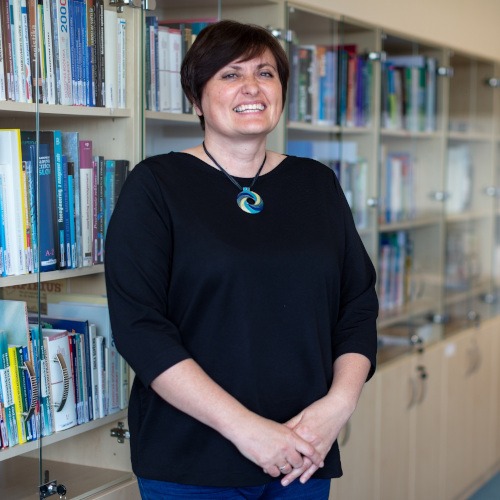
doc. Ing. et Ing. Lea Kubíčková, Ph.D.
Research Area
She began working at the Faculty of Business and Economics at Mendel University in 1998. From 2011 to 2023, she served as the head of the Department of Marketing and Trade, and she now holds the position of Vice-Rector at the university. She teaches courses primarily focused on commerce, such as trade logistics, business operations, and international trade. Her publication activity includes numerous professional articles and contributions to domestic and international conferences. In recent years, her research has primarily focused on consumer behavior in food waste production and on behavioral patterns of consumption.

Research Area
She began working at the Faculty of Business and Economics at Mendel University in 1998. From 2011 to 2023, she served as the head of the Department of Marketing and Trade, and she now holds the position of Vice-Rector at the university. She teaches courses primarily focused on commerce, such as trade logistics, business operations, and international trade. Her publication activity includes numerous professional articles and contributions to domestic and international conferences. In recent years, her research has primarily focused on consumer behavior in food waste production and on behavioral patterns of consumption.
Ing. Veronika Antošová, Ph.D.
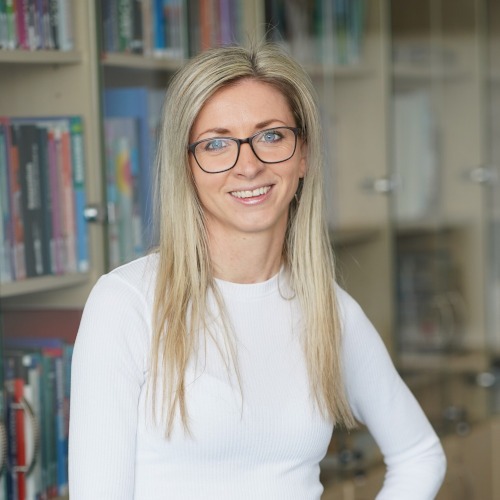
Ing. Veronika Antošová, Ph.D.
Research Area
She works as an assistant professor at the Department of Marketing and Trade, specializing in marketing courses. She graduated from the Faculty of Business and Economics at Mendel University in Brno, where she defended her dissertation in 2014, focusing on the standard of living and income levels of seniors. She has addressed this topic in her publications and as part of a project funded by the Technology Agency of the Czech Republic (TAČR), which focused on supporting positive aging. Currently, in her scientific and research activities, she focuses on sustainability and food waste, specifically among Generation Z, where she is also a co-investigator on a TAČR project.

Research Area
She works as an assistant professor at the Department of Marketing and Trade, specializing in marketing courses. She graduated from the Faculty of Business and Economics at Mendel University in Brno, where she defended her dissertation in 2014, focusing on the standard of living and income levels of seniors. She has addressed this topic in her publications and as part of a project funded by the Technology Agency of the Czech Republic (TAČR), which focused on supporting positive aging. Currently, in her scientific and research activities, she focuses on sustainability and food waste, specifically among Generation Z, where she is also a co-investigator on a TAČR project.
Ing. Stanislav Mokrý, Ph.D.
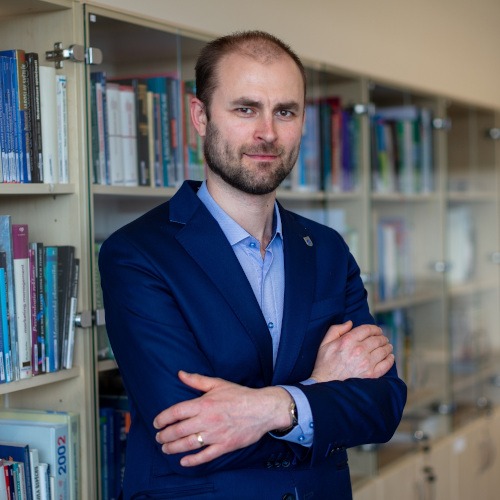
Ing. Stanislav Mokrý, Ph.D.
Research Area
His research interests lie in the fields of consumer neuroscience and neuromarketing, with a focus on the utilization of eye-tracking technology to assess consumer attention. This aligns with his broader research agenda, which encompasses the role of visual communication in influencing consumer decision-making processes. He currently holds a position at the Department of Marketing and Trade, where he leads the eye-tracking laboratory, ETLab. His academic qualifications include a Master’s degree in System Engineering and Informatics and a PhD in Economics and Management.

Research Area
His research interests lie in the fields of consumer neuroscience and neuromarketing, with a focus on the utilization of eye-tracking technology to assess consumer attention. This aligns with his broader research agenda, which encompasses the role of visual communication in influencing consumer decision-making processes. He currently holds a position at the Department of Marketing and Trade, where he leads the eye-tracking laboratory, ETLab. His academic qualifications include a Master’s degree in System Engineering and Informatics and a PhD in Economics and Management.
Ing. Andrea Králiková, Ph.D.
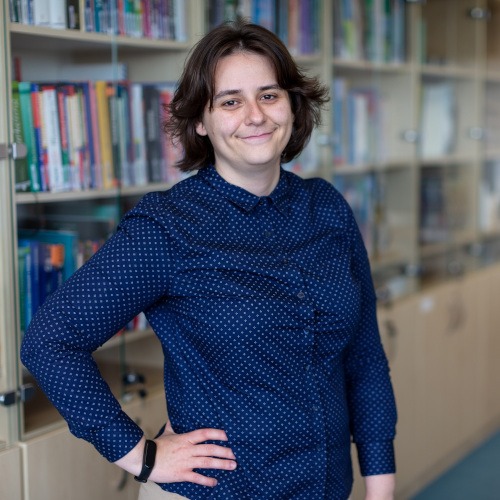
Ing. Andrea Králíková, Ph.D.
Research Area
In her research activities, she focuses on satisfaction and loyalty in tourism, with a primary focus on emotions, happiness, and well-being. Recently, she has also been concentrating on the issue of food waste in connection with structural modeling, which serves to identify deeper interrelationships among various variables. In her role at CzechTourism, she is involved in acquiring and subsequently processing secondary data, which she analyzes using PowerBI and the ArcGIS application (for map data visualization). In the pedagogical field, she focuses primarily on sustainable tourism and data processing in tourism.

Research Area
In her research activities, she focuses on satisfaction and loyalty in tourism, with a primary focus on emotions, happiness, and well-being. Recently, she has also been concentrating on the issue of food waste in connection with structural modeling, which serves to identify deeper interrelationships among various variables. In her role at CzechTourism, she is involved in acquiring and subsequently processing secondary data, which she analyzes using PowerBI and the ArcGIS application (for map data visualization). In the pedagogical field, she focuses primarily on sustainable tourism and data processing in tourism.
Ing. Irena Baláková, Ph.D.
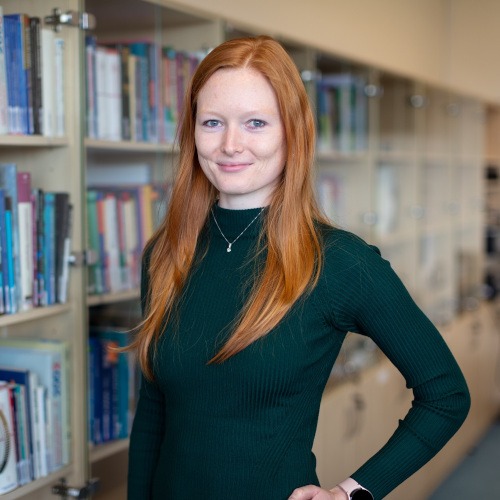
Ing. Irena Baláková, Ph.D.
Research Area
Irena Baláková successfully completed her doctoral studies in economics and management in 2021. She is currently engaged in research on consumer behavior with an emphasis on sustainability. She is an active member of research teams involved in several projects aimed at preventing waste in households and utilizing food waste, as well as projects focused on digital educational tools for developing consumers’ environmental competencies in line with circular economy principles, such as re-use and upcycling.

Research Area
Irena Baláková successfully completed her doctoral studies in economics and management in 2021. She is currently engaged in research on consumer behavior with an emphasis on sustainability. She is an active member of research teams involved in several projects aimed at preventing waste in households and utilizing food waste, as well as projects focused on digital educational tools for developing consumers’ environmental competencies in line with circular economy principles, such as re-use and upcycling.
Ing. Michal Pšurný, Ph.D.
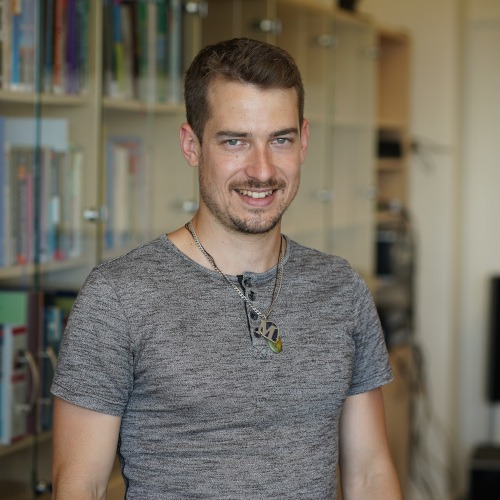
Ing. Michal Pšurný, Ph.D.
Research Area
He originally graduated in Biomedical Engineering from the Faculty of Electrical Engineering and Communication at Brno University of Technology. He strives to apply neuroimaging and biometric methods (eye-tracking, EEG, face-reading, etc.) to marketing challenges—neuromarketing. His research focuses primarily on online marketing and consumer behavior on the internet, particularly among Generation Z. Currently, he is also exploring topics related to sustainability, trends in consumer behavior, including food and water waste, and models of consumer behavior.

Research Area
He originally graduated in Biomedical Engineering from the Faculty of Electrical Engineering and Communication at Brno University of Technology. He strives to apply neuroimaging and biometric methods (eye-tracking, EEG, face-reading, etc.) to marketing challenges—neuromarketing. His research focuses primarily on online marketing and consumer behavior on the internet, particularly among Generation Z. Currently, he is also exploring topics related to sustainability, trends in consumer behavior, including food and water waste, and models of consumer behavior.
Our outputs
Projects
Science Publications
Media
Workshops and events
Consumer Behavior Lab
Consumer Behavior Lab (CoBeLab) explores how visual stimuli influence consumer decision-making using eye-tracking and EEG technologies. We study visual attention, cognitive processes, and consumer behavior in marketing contexts. Our lab is equipped with systems from SMI, SR-Research, Pupil Labs, and Brain Products, including Emotiv EPOC+.